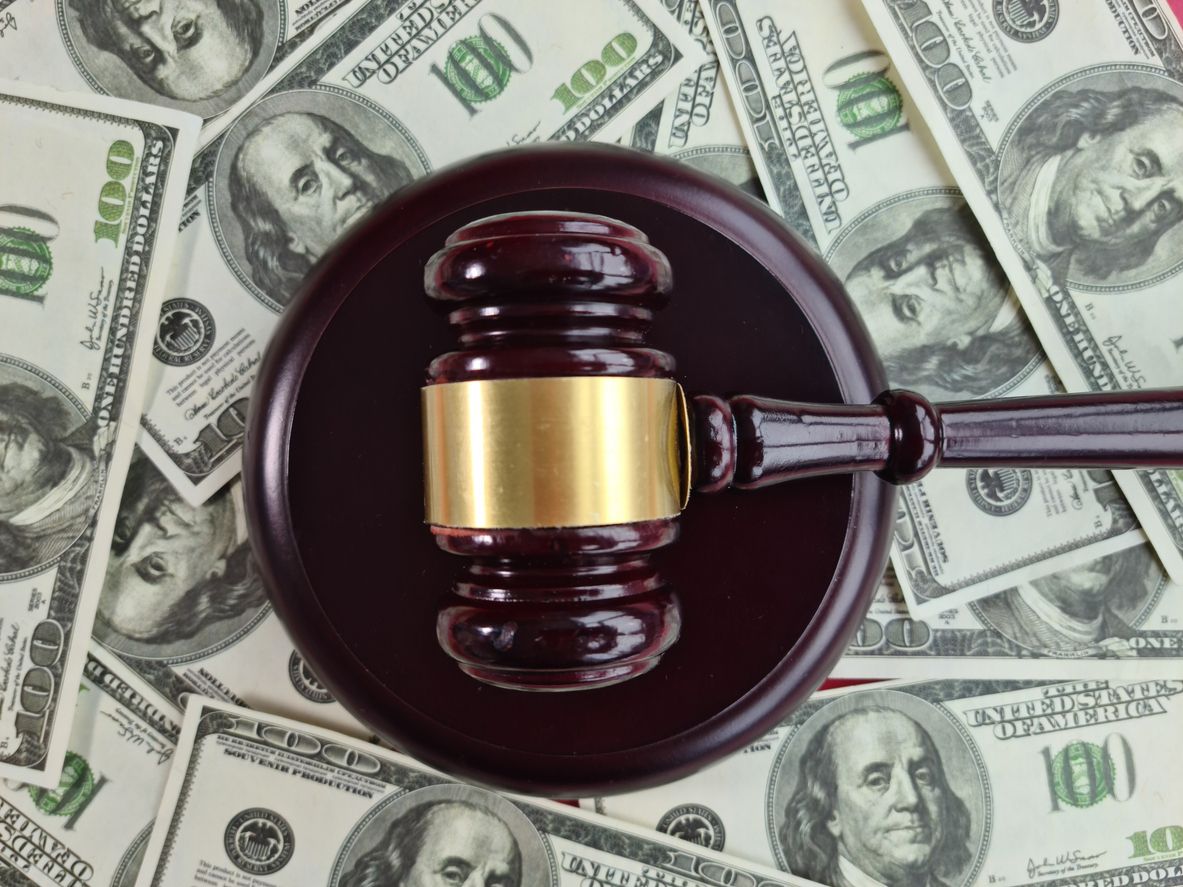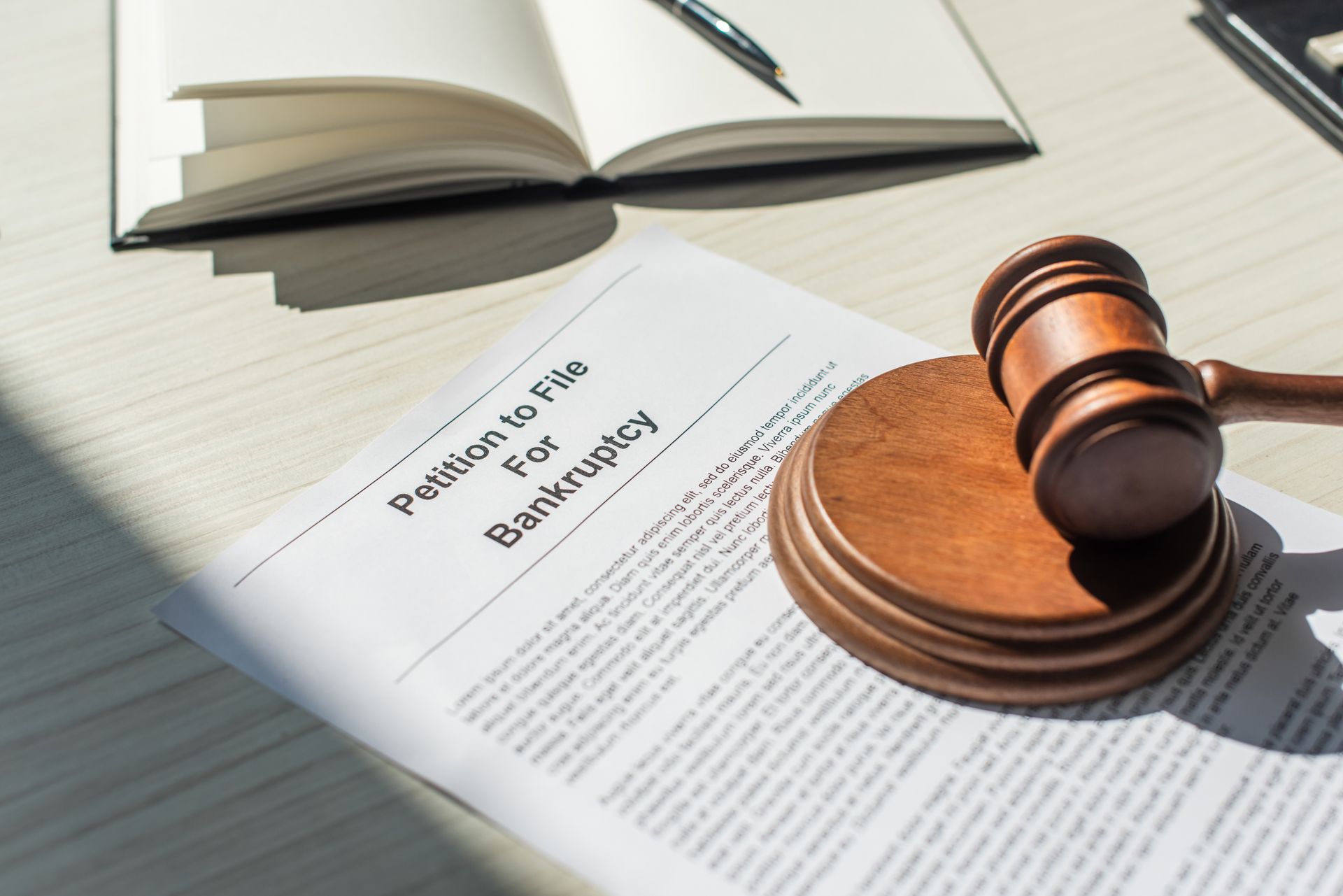Contact Us
Phone: 856-644-7929
Location
1818 Old Cuthbert Rd
Suite 107
Cherry Hill, NJ 08034
Hours
- Mon - Fri
- -
- Sat - Sun
- Closed
What Are The Benefits of Filing For Chapter 7 Bankruptcy
Benefits of Filing Chapter 7 Bankruptcy
Bankruptcy occurs when a person or a business is unable to pay their debts or meet other financial obligations. It is a legal method for getting relief from the situation.
Bankruptcy is typically the last option for people who are unable to renegotiate payments for loans or make other arrangements with their creditors. Though it stops the collections processes, it may require you to liquidate your assets, and it will affect your credit score.
That said, the goal of bankruptcy is to give yourself a fresh, debt-free start and a chance to rebuild your credit.
Types of Bankruptcy
There are several types of bankruptcy:
- Chapter 7 uses a liquidation process to pay off creditors using the debtor's assets and other available funds. This option is most common for individuals.
- Chapter 11 allows businesses (and some individuals) to restructure their debt so that they can pay it off without liquidation.
- Chapter 13 is another restructured debt option for individuals with regular income who will be able to pay off their debt but need different terms than they currently have.
Most individuals will opt for Chapter 7 because it is the only practical option available to them.
Though it is possible to file the necessary documents yourself in Cherry Hill, New Jersey, you can also hire a bankruptcy lawyer to assist with the process.
How Chapter 7 Works
The process of Chapter 7 bankruptcy starts when you file a petition with a bankruptcy court. These courts are all part of the federal legal system, so the process is similar no matter where you live. The entire process can take about four to six months.
- Once your petition gets accepted, the court issues a stay to your creditors. This order requires them to stop collections activities.
- A trustee will take over your case. They will oversee the process, communicate with creditors, and liquidate your assets.
- You must submit supporting documents to show your assets and income.
- You attend a meeting of creditors during which all your creditors can ask questions and request documentation. Creditors can, but rarely, attend the meeting.
- You must complete financial management courses during the bankruptcy process. Your debts won't be fully discharged until you do and submit evidence to the trustee.
- The trustee will oversee the liquidation of your assets and the distribution of proceeds to your creditors.
Once you complete all requirements, the debt is discharged and creditors can no longer pursue you for additional repayment. However, it can take up to 10 years to remove the bankruptcy from your credit report.
The Advantages of Chapter 7 Bankruptcy
Most debtors focus on the negative aspects of bankruptcy, such as liquidation and the impact on credit scores. However, bankruptcy also brings benefits. It is essential to understand these advantages to help decide whether chapter 7 is best for you.
- Chapter 7 bankruptcy brings an automatic stay on all unsecured debt. Creditors must immediately stop contacting you for repayment. If you complete the process correctly, they will never contact you after you file for bankruptcy.
- You will have a clean financial slate after the discharge of your debts. Unlike other forms of bankruptcy, which require repayment plans, chapter 7 completely dismisses all debt and gives the debtor a new start.
- The process is much faster than other bankruptcy options. The process, from filing to discharge, usually takes six months or less.
- You will get rid of unsecured, consumer debt. Credit card debt, hospital bills, and personal loans will get discharged after liquidation.
- Chapter 7 allows you to keep necessities exempt from liquidation. This property may include your home, vehicle, or tools necessary for your job. Exemptions can vary, so it is typically best to ask an attorney about claiming them.
- You will take a financial planning course, which can help you set up a plan for the future and avoid excessive debt.
- Filing for bankruptcy prevents creditors from taking any further legal action against you for non-payment.
- Future income and assets acquired after bankruptcy are not affected by your debt. You can immediately start building a savings account.
- You typically deal directly with a trustee instead of appearing in court, making the chapter 7 process less stressful than other options.
A lawyer is allowed to help you with the bankruptcy process and can argue on your behalf for exemptions or other issues involved in chapter 7.
Qualifications for Chapter 7 Bankruptcy
You need to meet specific requirements to file for chapter 7.
- This option is available to individuals or small businesses.
- Your average monthly income for the previous six months needs to be less than the average income for a similar-sized household in the same state. Alternatively, you could pass a means test to prove that you do not have disposable income to pay creditors.
- You have not filed for bankruptcy in eight years (six years for chapter 13 bankruptcy).
- If a court dismissed your previous bankruptcy petition, you must wait six months (181 days) before trying again.
- You can support claims of assets with financial documentation.
- You can complete a credit counseling course.
Chapter 7 is best for unsecured debts, like credit card debt. With secured loans, the lender has the right to repossess your property if you do not make payments, so chapter 7 may not provide relief in these situations.
Exemptions for Chapter 7
Also, some types of debt are exempt from discharge during bankruptcy. These include:
- Child support and alimony payments
- Student loans
- Court fees and fines
- Taxes (with some exceptions)
- Debts from accidents for which you were liable
- Fees for condo or homeowner associations
How an Attorney Can Help with Chapter 7 Bankruptcy
You can technically file for chapter 7 bankruptcy without an attorney. However, the process has long-term financial consequences, so you should seek legal advice if you have any concerns, questions, or uncertainties about the process. If you need to defend your petition or claims, a lawyer in Cherry Hill, New Jersey can represent you. The US Court System website strongly recommends consulting a lawyer during bankruptcy.
Reach out to us if you are considering filing for bankruptcy.





Schedule a Case Evaluation
Contact us now!
Homepage FCE Form
We will get back to you as soon as possible.
Please try again later.
By submitting this form, you agree to be contacted by our law firm, either by phone, text or by email.
Practice Areas
Disclaimer: We are a debt relief agency. We are attorneys who help people file for bankruptcy relief under the bankruptcy code.
The information on this website is for general information purposes only. Nothing on this site should be taken as legal advice for any individual case or situation. This information is not intended to create, and receipt or viewing does not constitute an attorney-client relationship.
© Copyright 2022 | All Rights Reserved | Robert H. Johnson LLC | Powered By Convert It Marketing | Privacy Policy





